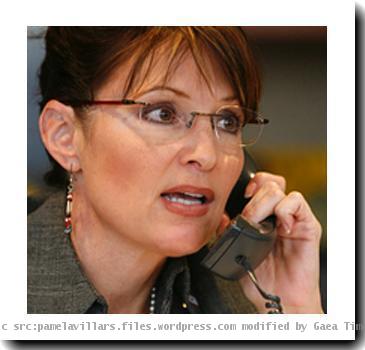Alaska Gov. Parnell vetoes bill changing state’s system of taxing oil, natural gas
By Becky Bohrer, APThursday, April 29, 2010
Parnell vetoes bill to separate gas, oil taxes
Alaska Gov. Sean Parnell on Thursday vetoed a measure that would have changed the state’s system of taxing oil and gas production together.
The veto, the first of the Republican’s still-young administration, came one day before the scheduled start to an open season for a major natural gas pipeline being advanced by TransCanada Corp. and Exxon Mobil Corp. under the Alaska Gasline Inducement Act. The open season — when shipping commitments are sought for a line — was seen as the impetus among some lawmakers for pushing to have oil and gas production taxes separated.
The veto wasn’t entirely unexpected. Parnell for months expressed skepticism about the need for the change now. His revenue commissioner, Pat Galvin, was perhaps the most outspoken critic of the change in the waning days of the recent legislative session, claiming it sent the wrong message to industry.
Parnell echoed that in a statement Thursday and said the bill “effectively would have levied a significant overall tax increase on companies engaged in oil and gas production.”
A change in the structure now, he said, “could be a destabilizing influence and adversely affect the two upcoming open seasons for Alaska natural gas shipping commitments.”
After the first open season beginning Friday, the second open season, for a competing project jointly owned by ConocoPhillips and BP PLC, is set to start this summer.
Senate Finance Committee co-chair Bert Stedman, who became the public face for lawmakers seeking the change, didn’t buy Parnell’s assertion that the bill would have adversely affected the open seasons. If anything, he said, Parnell’s veto could leave the state open to “substantial exposure” depending on the results of the imminent open season.
“It’s bad news for the state, in my opinion, no doubt,” Stedman, R-Sitka, told The Associated Press in a phone interview. With the open season starting Friday, there was no time for any veto override attempt.
“It was a decision the governor had to make,” Stedman said. “The Legislature made (its) decision, that it did not want the exposure to the state.”
The issue consumed considerable time and attention during the session. Lawmakers seeking the change argued that once gas begins flowing through a major line in a decade or so, the state stands to potentially lose $2 billion or more unless the two taxes are split.
They attributed this possible loss to a “dilution effect” on revenues when oil prices are high relative to gas and said it would essentially amount to Alaska giving away its resource.
Currently, tax calculations on energy companies’ profits are based on the combined energy value of oil and gas. According to a report by consultants Logsdon & Associates, combining lower-value gas with higher-value oil under a major gas sale would push down the net value of the combined two and dilute the state’s profitability on a per-barrel basis.
Stedman has said the current structure had the potential to “blow up our entire fiscal regime” that makes oil Alaska’s bread-and-butter commodity, and he said lawmakers would be derelict in their duty if they ended the session with the issue unresolved.
It almost didn’t pass. The House voted down the measure late on the Legislature’s last scheduled day, April 18. That set off a tense standoff with the Senate that ended hours later: The House rescinded its vote and passed the bill after supporters’ efforts to persuade their colleagues. The Legislature adjourned early April 19.
The highly complicated issue found ardent supporters, equally ardent opponents and a vast middle uncertain what to make of it. Both sides relied heavily on projections that may or may not prove out; it’s not yet clear if there will even be a major pipeline.
Parnell, at one point, called the $2 billion figure “mythological,” and Galvin’s department said it would only be realized if three things came to pass: Alaska was successful in realizing a major line; oil and gas prices remained far apart, “defying fundamental economic principles”; and the next five legislatures left the current tax structure alone.
Stedman maintained, though, that it was safer to err on the side of caution. On Thursday, he said the veto leaves the state in a weaker negotiating position and disputed claims the bill amounted to a tax increase.
In his statement, Parnell said that while the legislative hearings on the issue were a “worthwhile exploration of important state policy issues, not enough consideration was given to the complexity of the subject.”
He said he expects the state and producers to discuss fiscal issues and terms in the coming years. The debate around the bill, he said, “provides a valuable starting point.”
Tags: Alaska, Energy, Energy Policy, Government Regulations, Industry Regulation, North America, Sarah palin, United States

